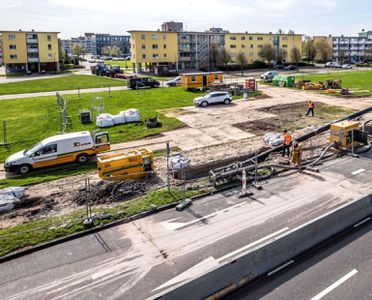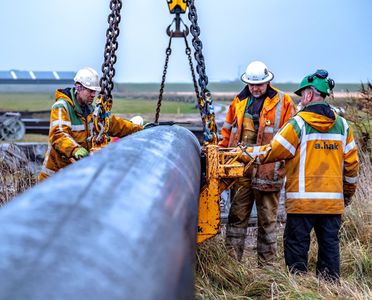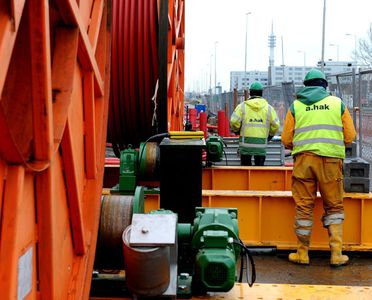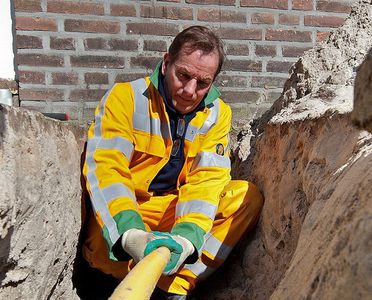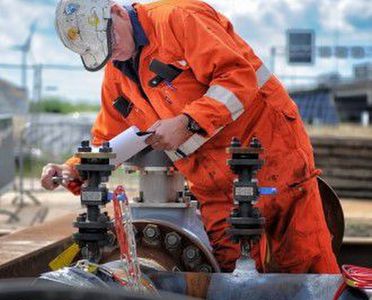Gas pipelines
In Europe, electricity, heat, biogas and hydrogen replace natural gas. Elsewhere in the world, natural gas is a more sustainable alternative for other kinds of fossil energy such as coal. But in Europe, too, the role of natural gas is far from over and we also expect an increase in the use of greener gas and hydrogen.
The Netherlands have benefited significantly from natural gas. When the Dutch discovedred their own natrional reserve in the province of Groningen in the 1960s, it was good news for the economy and the environment. After all, natural gas was much cleaner than oil or coal.
The developments of some fifty to sixty years ago can therefore safely be called the 'energy transition' of that day and age. And A.Hak was already there to play its part. A significant part of the gas infrastructure in our country was built by our company. That experience is invaluable to us. Also now that we are increasingly constructing heat pipelines, high-voltage cables, biogas pipelines and perhaps soon hydrogen pipelines in the Netherlands.
International player
On the international playing field, that's a completely different story. The transition from oil and coal to natural gas, which we have long since completed in the Netherlands, has yet to take place in other countries. The role of natural gas has not yet been played out elsewhere.
For instance, A.Hak is currently working in Germany, the United Kingdom and Albania on the construction of large gas transport pipelines. And in Israel we have realized the landfalls of gas pipelines rom the Mediterranean Sea by means of Direct-Pipe drilling technology Twice, in quick succession. These are assignments that further strengthened our excellent reputation abroad. Below we present footage from various large pipeline projects.
Watch the footage
- Karish - landfall in Israel
- River Humber Gas Pipeline Replacement Project
- BBC Look North: The Humber Project
- Gas transport pipelines in France
- Trans Adriatic Pipeline, Albania
- Dutch Gas Hub completed
Gas pipeline projects

North-South Route
A.Hak constructed two thirds of Gasunie’s gas transport pipeline between Beverwijk and Wijngaarden. A project that can justifiably be called a work of extremes.
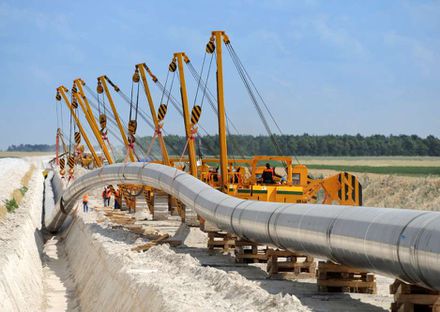
French pipeline projects
GRTgaz has been a valued French client of A.Hak for many years. Two recent projects, Arc de Dierrey and Val de Saône, have been impressively filmed. Take a look in France.
